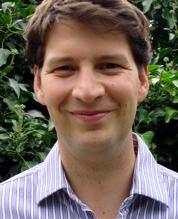About the Course
Philosophy and Theology brings together some of the most important approaches to understanding and assessing the intellectual claims of religion, and in particular of Christianity.
It fosters intellectual capacities that you can apply across both disciplines, and develops skills which you will find useful for a wide range of careers and activities after graduation. The degree is constructed in the belief that the parallel study of these related disciplines provides new perspectives on each, leading to deeper understanding.
The study of philosophy develops analytical rigour and the ability to criticise and reason logically. It allows you to apply these skills to many contemporary and historical schools of thought and individual thinkers, and to questions ranging from how we acquire knowledge and form moral judgements to central questions in the philosophy of religion, including the existence and nature of God and the relevance of religion to human life.
The study of theology and religion brings together a wide range of skills and disciplines, historical, textual, linguistic, sociological, literary-critical and philosophical. It provides a grounding in the theology and ethics, Christianity, from the early to the modern, along with a wide range of options in the academic study of religion, including non-Christian traditions.
The Philosophy Faculty is the largest philosophy department in the UK, and one of the largest in the world, with more than 70 full-time members, admitting more than 500 undergraduates annually to read the various degrees involving Philosophy. Many Faculty members have a worldwide reputation, and our library and other facilities are acknowledged as among the best in the country.
The Faculty of Theology and Religion has nearly 100 members, covering almost every possible branch of the discipline, ranging from experts in the ancient languages and literature of the world’s religions to church historians and systematic theologians. Its reputation attracts scholars from all over the world as visiting lecturers.
Your work is divided between tutorials (one or two weekly), lectures (typically six to eight weekly), and perhaps some classes, for instance for first-year logic, or for languages such as New Testament Greek. A large part of your week will be spent in private study to prepare essays for tutorials. The tutorial system, involving a programme of recommended reading and the individual discussion of weekly essays, is particularly well adapted to subjects such as Philosophy and Theology where the analysis and comparison of different theories and points of view will occupy a central place.
For the Preliminary Examination, taken at the end of the third term, students are examined in four courses. For Theology, this includes The Figure of Jesus through the Centuries and one other, chosen between Introduction to the Study of the Bible, Religion and Religions, New Testament Greek, Biblical Hebrew, Qur’anic Arabic, Vulgate Latin, Pali, or Sanskrit.
For philosophy, students study the same topics as for PPE and PPL, but are examined over two papers instead of one. Students sit a paper in General Philosophy (metaphysics, epistemology and philosophy of mind) and a further paper in Logic and Moral Philosophy (the latter being studied through engagement with J. S. Mill’s Utilitarianism).
For the Final University Examination, students take eight papers, either five in Philosophy and three in Theology, or five in Theology and three in Philosophy, or four in each. A thesis may replace one of the eight papers.
Students are required to study the Philosophy of Religion. Additionally, they must study either Knowledge and Reality or Early Modern Philosophy. They must also choose to study either Ethics or the work of one Ancient philosopher, for which the available options are Plato’s Republic and Aristotle’s Nicomachean Ethics. A considerable number of other optional papers are available: see the list under PPE.
On the Theology side, there is a wide range of optional papers to choose from, including Ethics I: Christian Moral Reasoning.
If you are contemplating a course involving Philosophy, or wondering whether such a course would suit you, you might wish to read some of the following:
- Thomas Nagel What Does It All Mean? (Oxford)
- Bertrand Russell The Problems of Philosophy (Oxford)
- M Hollis Invitation to Philosophy (Blackwell)
- Nigel Warburton Philosophy: The Basics (Routledge)
- Julia Driver Ethics: the Fundamentals (Blackwell)
- Simon Blackburn Think (Oxford)
- Roger Scruton An Intelligent Person’s Guide to Philosophy (Duckworth)
On the Theology side you might find the following useful:
- David Ford Theology: A Very Short Introduction (Oxford, 2000)
- Alister McGrath Christian Theology: An Introduction, 5th ed. (Blackwell, 2011)
- Keith Ward Christianity: A Guide for the Perplexed (SPCK, 2007)
- D. Wenham & S. Walton Exploring the New Testament: Gospels and Acts (SPCK, 2011)
- NT Wright & M. Borg The Meaning of Jesus (Harper, 2007)


